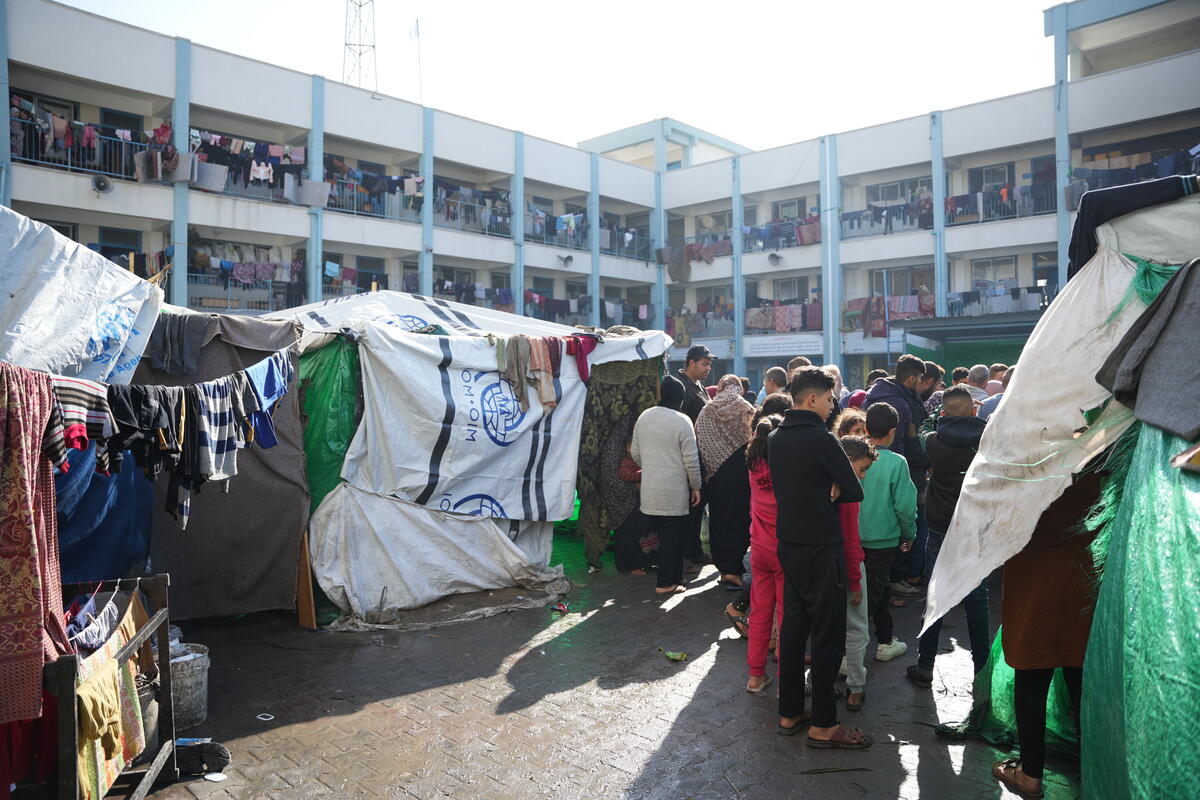ROME – More than one in four households in Gaza currently face extreme hunger, and there is a risk of famine unless access to adequate food, clean water, health and sanitation services is restored, according to a new Integrated Food Security Phase Classification (IPC) report released today. IPC is a multi-stakeholder platform that analyses data to determine the severity and magnitude of hunger crises, according to internationally-recognized scientific standards.

This latest food security analysis for Gaza, which includes data from the World Food Programme (WFP), other UN agencies and non-governmental organizations, confirmed that the entire population of Gaza – roughly 2.2 million people – are in crisis or worse levels of acute food insecurity. The IPC report further highlighted that 26 percent of Gazans (576,600 people) have exhausted their food supplies and coping capacities and face catastrophic hunger (IPC Phase 5) and starvation.
“WFP has warned of this coming catastrophe for weeks. Tragically, without the safe, consistent access we have been calling for, the situation is desperate, and no one in Gaza is safe from starvation.” said WFP’s Executive Director Cindy McCain.
According to the IPC, there is a risk of famine occurring within the next six months if the current situation of intense conflict and restricted humanitarian access persists. From earlier assessments, WFP food security experts had already established that Gazans have used up all their resources, livelihoods have collapsed, bakeries are destroyed, shops are empty, and families can’t find food. People told WFP staff that they often go entire days without eating and that many adults go hungry so that children can eat.
“These are not just numbers – there are individual children, women and men behind these alarming statistics,” said WFP Chief Economist Arif Husain. “The complexity, magnitude and speed that this crisis has unfolded is unprecedented.”
More emergency food and multi-sectoral assistance is essential to prevent wide-spread deaths. The recent seven-day pause highlighted that WFP and partners can provide assistance when the conditions allow, and the re-opening of the Kerem Shalom border crossing sets the stage for more food and other relief supplies to flow into Gaza, which needs to continue and accelerate with additional border crossings and operating conditions inside Gaza that allow for safe and orderly deliveries to all people in need.
“We cannot stand by and watch people starve. Humanitarian access is needed now for supplies to flow into and throughout Gaza and for civilians to safely receive life-saving aid,” said McCain. “More than anything, what is needed now is peace. WFP reiterates the call for a humanitarian ceasefire – the world must come together now to save lives.”
Note to Editors:
Read the IPC Report here.
Photos available via this link.
Broadcast quality video available here.
